Professor Layton Still Has The Best Video Game Movie
"Professor Layton and the Eternal Diva" works both as an adaptation and as a standalone film.
With The Super Mario Bros. Movie and The Last of Us HBO television adaptation creating significant buzz this spring, talk is brewing of the “video game adaptation curse” finally being broken.
After decades of horrible cinematic takes created by clueless producers and cowardly studios, some say we’re finally getting shows and films that respect the source material and it even proves that gaming is a “mature” artistic medium that non-gamers can now respect.
I personally don’t buy into it.
While the number of bad video game movies certainly outweighs the number of good ones, to suggest that better adaptations are a recent phenomenon is doing quite a bit of historical revisionism. If we’re talking Hollywood, have things really been that much worse compared to the many failed adaptations of novels?
The 1995 adaptation of Mortal Kombat is no masterpiece, but it has been a consistent cult classic and is far away from a terrible film (though the less said about its sequel, the better). The Lara Croft movies are perfectly serviceable Indiana Jones-esque romps, and I’m personally now a big fan of the 2006 live-action Silent Hill movie.
But what about those Rotten Tomatoes scores, you might ask? Apart from RT being a highly flawed metric to gauge the quality of movies, the majority of film critics aren’t gamers.
Arguments can be made that this shouldn’t matter since film and video games are two separate mediums, but I would wager that having little understanding or even a low opinion of video games is going to make someone who only consumes films to be more dismissive than they normally would be.
If we go to the other side of the world, we can see that the Japanese have been making video game adaptations since the 1980s, and there’s plenty of good stuff to be found. Mario had a perfectly enjoyable anime film a year after the first game on Famicom came out. The Street Fighter II animated movie is legitimately fantastic and perfectly captures the spirit of the games. This also doesn’t even include Steins;Gate, Persona 4, and the many other anime shows which have done their source material justice.
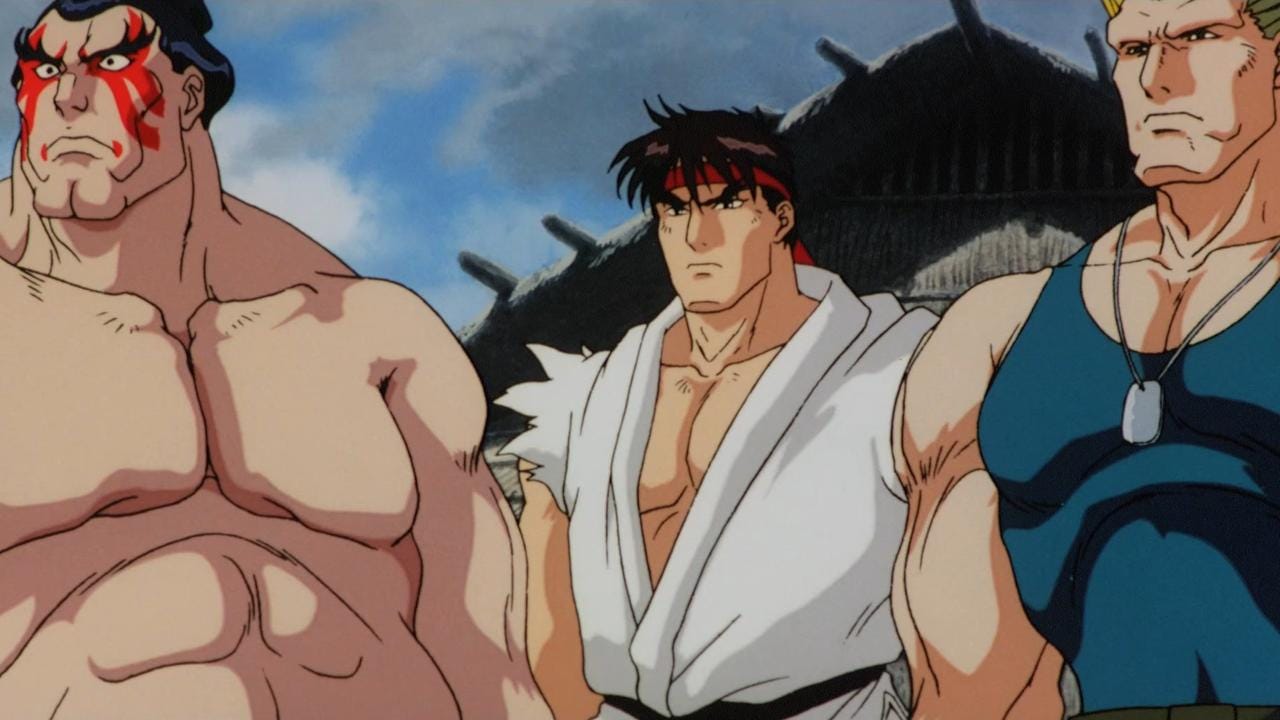
Out of all of them though, I’ve long been a champion of Professor Layton and the Eternal Diva, a film that I believe is still the best adaptation of a video game for several reasons.
If you were one of the 154 million people who owned a Nintendo DS, chances are high that you played or at least heard of Level-5’s highly acclaimed puzzle adventure series Professor Layton. With addicting brainteasers, gorgeous artwork, charming characters, interesting stories, and high production values, it’s little surprise that Layton was among one of the handheld’s strongest franchises.
After a successful trilogy of games featuring the titular professor and his young assistant Luke Triton, Level-5 decided to do a George Lucas and make the next round of games a prequel trilogy. Chronologically set between the fourth title The Last Specter and the fifth title The Miracle Mask came a film entitled The Eternal Diva which hit Japanese cinemas on December 19, 2009.
From the outset, this shouldn’t necessarily work. How do you make a film based on a video game that’s highly reliant on puzzle-solving? Furthermore, wouldn’t wedging in a full chapter right in the middle of the story alienate people not familiar with the series? Eternal Diva surprisingly gets over both hurdles with little issue.
At the beginning of the film, we quickly learn who Professor Layton is, see his job as an archeologist and university teacher, and become aware of the fact that he’s often asked to consult on many criminal cases from the beginning of the film. Even if you’ve never picked up a Nintendo DS stylus in your life, the opening sequence does a swift job of getting the viewer up to speed.
While there are Easter eggs and references to in-game characters, for the novice it’s akin to reading a random Sherlock Holmes novel or short story. You don’t need to know every facet of Holmes and Moriarity’s relationship to know that they’re rivals, and the Professor Layton series works the same way.
Furthermore, one of the franchise’s greatest strengths has always been having fully animated cutscenes that are on par with any film or television show. The Eternal Diva just upgrades the animation further, and the puzzles are even still present too. There’s naturally far less of them to fit the runtime of a 100-minute film compared to a 20-hour video game, but they weave naturally into the narrative and give the viewer some time to figure out the solution with the characters on screen.

The story centers around Layton and Luke in the present reminiscing about a previous case set shortly after their first meeting. A famed singer named Janice Quatlane invites the duo to see her perform at the Crown Petone, but all those present are soon made to play a deadly game where one winner is promised eternal life.
Anyone familiar with the Professor Layton games will know that what follows is narrative full of twists and turns where no one is who they say they are, and the truth behind the mystery is an elaborate conspiracy. While The Eternal Diva’s story is perhaps not as engrossing as some of the games, I was pleased to see that it told an intelligent yarn that appropriately mixed scenes of mystery-solving, action, and even quieter, pensive moments.
The recent Super Mario Bros. movie did a good job capturing the overall spirit of the games, but if I had to offer any major criticism, it’s that it moved at such a breakneck speed it hardly gave the audience enough time to breathe. It succeeded on a technical level, but more time could have been spent on the pathos of its characters.
The Eternal Diva doesn’t have that problem, and that’s why I still believe it to be the best film adaptation of any video game. Like any good entry of a long-running series, it enhances the existing lore of Professor Layton and provides further context into what influenced the mentor-student relationship we see between the protagonists in the games which take place later down the line chronologically.
Despite having a relatively large cast of new characters who can only have so many minutes of individual screen time, the film’s writers do a good job of making each one feel developed and believable. All have different motivations for wanting to receive eternal life, which is the most compelling aspect.
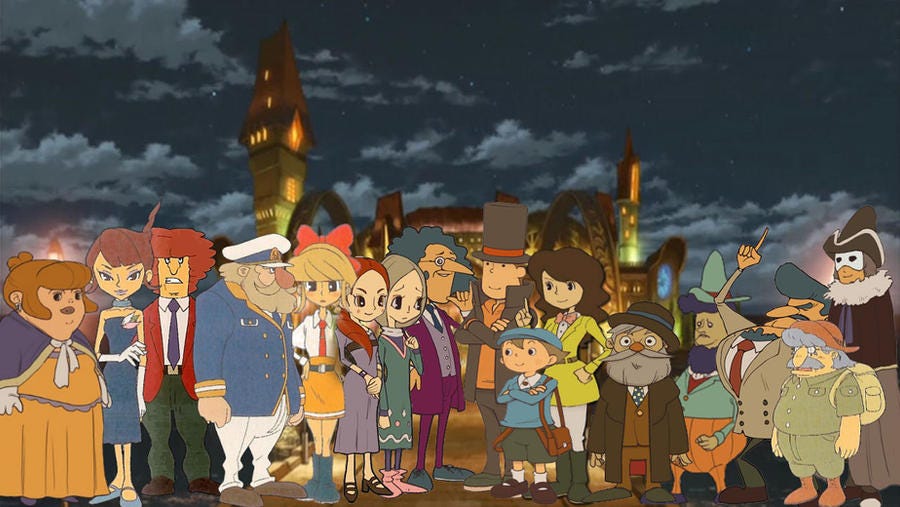
Celia Raidley is a vain model who wants to keep her youthful beauty forever, and her being voiced by Kikuko Inoue is totally fitting as those are the kinds of roles she’s known for. On the other hand, Annie Dretche is an Agatha Christie-esque author who desires to write novels forever. Amelia Ruth, however, has far less selfish intentions and wants to save her dying grandfather by giving him eternal life. In just a few seconds each, we instantly understand what makes these characters tick, which is a sign of effective writing.
Without diving too deeply into spoilers, the film’s ultimate message is a surprisingly moving one about accepting the finite nature of life and how keeping the memories of those departed in one’s heart is its own form of immortality. If you’ve especially ever had to deal with the loss of a loved one, the last scenes will likely have you reaching for the tissues, which is something I doubt many can say most video game adaptations have achieved.
When it comes to the animation itself, The Eternal Diva easily surpasses the already high-quality production values seen in the games. While it isn’t quite on par with a Hayao Miyazaki or Makoto Shinkai film, the character models are all charming, the detailed backgrounds are beautifully painted, and the occasional use of CGI has surprisingly aged quite well for an anime released in 2009.
And speaking of Miyazaki, one can’t help but feel as if there’s some Ghibli influence throughout the proceedings. The makeshift flying vehicle Professor Layton makes feels very much inspired by what Lupin III uses in The Castle of Cagliostro, and the castle our heroes eventually arrive at reminds me of, well, the castle from Howl’s Moving Castle. Overall, P.A. Works did a good job and I think animation fans will be largely pleased with what they see.
With a title like The Eternal Diva though, music is obviously going to play a large role, and I can easily say that this is the film’s strongest aspect. Veteran singer Nana Mizuki, who voices Janice Quatlane, also provides the opening, insert, and ending songs, all of which are very memorable and actually integral to the story. Level-5 even put out an actual CD modeled after a vinyl record seen in the movie which features this content arranged into a short EP.
Veteran Professor Layton fans will get a kick out of the instrumental score, which is largely composed of tracks from the games arranged into a full orchestra. From the titular character’s French-inspired violin motif to the rousing track which plays during Layton’s battle with Jean Descole, it’s fantastic stuff that’s very effective in-film and also well-worth giving a standalone listen. The Layton games have always had beautiful music, but they truly soar when performed by an actual ensemble.
On the other side of the film’s audio, there’s the age-old question of whether one should watch this film in Japanese with English subtitles or dubbed into English. In short, you can’t go wrong either way. Professor Layton in Japanese sounds like your standard shonen anime with excellent voice actors, while the English dub feels just like how the games’ localization made the series akin to a quaint British novel.
Whether you prefer Japanese variety show celebrity Yo Oizumi as the good professor or the calming tones of Christopher Robin Miller’s voice, both continue the same quality of performance we’ve come to expect. The one disappointing part of the English dub is that major characters Emmy Altava and Jean Descole have different voice actors, but this is understandable in the context of the film having been dubbed long before the prequel games hit Western shores.
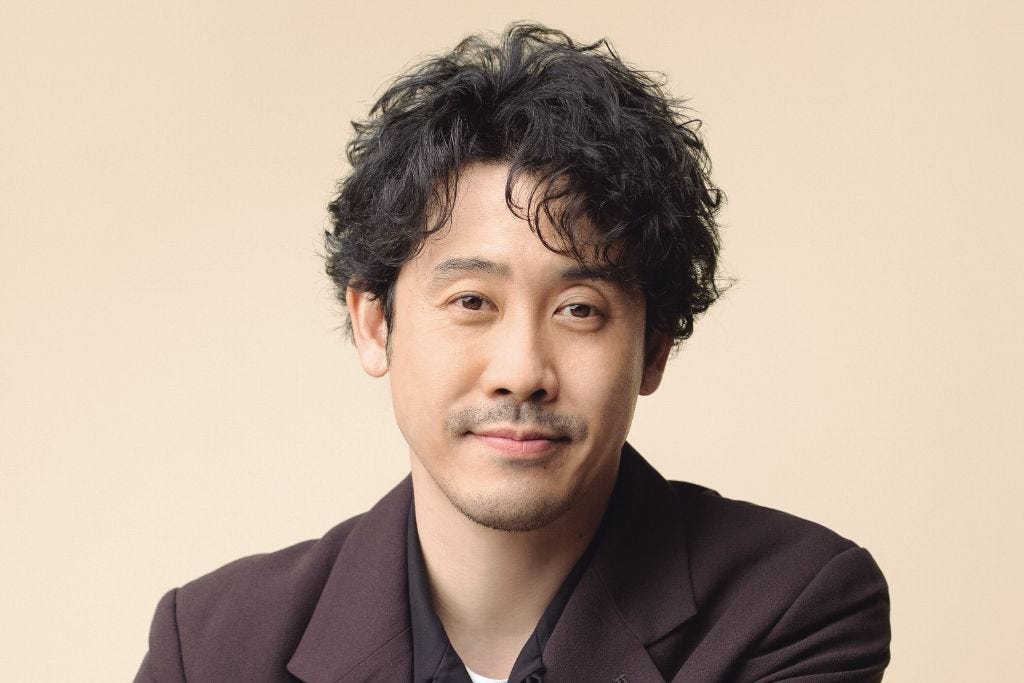
The Eternal Diva went on to be subtitled and dubbed throughout the world in various languages, but surprisingly only Europe received a Blu-ray release. The domestic Japanese DVD, however, features more extras including some fascinating behind-the-scenes footage of Level-5’s offices and the work that went into the film’s production. Overseas, it bizarrely even received a release on the 3DS eShop, which I suppose makes some sense given the series’ handheld origins.
Series creator Akihiro Hino announced at the time that he envisioned multiple films for Professor Layton, but The Eternal Diva was ultimately the only one we ever got. There were even a brief announcement of a potential live-action movie, but that too never came to fruition. Hershel Layton would eventually appear in animation again in the 50-episode anime sequel to the spin-off game featuring his daughter as the protagonist.
The game itself is often considered the black sheep in the series and many Layton fans including the present author ended up skipping it. Level-5 seems to have been banking on this being the new direction of the franchise, but low sales and the company’s overall financial troubles likely ended those plans.
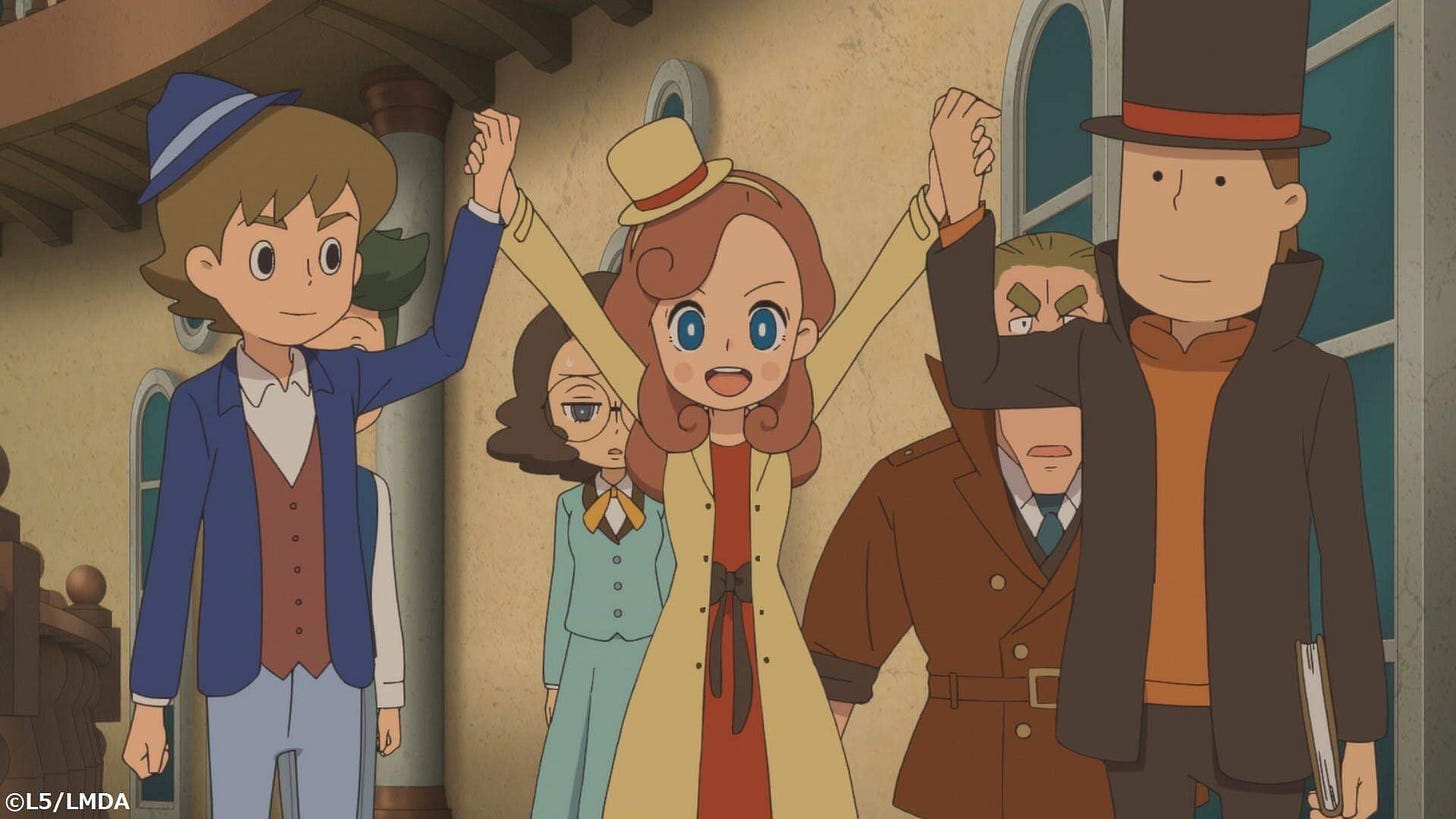
For the longest time, many wondered if Professor Layton was gone for good, but the announcement of a brand new game from earlier this year calmed those fears. It appears to be a soft reboot of the series for newer players and is definitely the shot in the arm Level-5 needs right now.
Time has been kind to Layton due to fan nostalgia and if the new game is successful, I wouldn’t be surprised if more films or television shows came out down the line. The series benefits from being largely self-contained with each entry, so there is certainly potential for future stories that can take the lore and characters to interesting places.
Until then, Professor Layton and the Eternal Diva ultimately strikes the right balance between being a faithful video game adaptation and an original story that appeals to a wide audience. Studios will undoubtedly explore various gaming IPs moving forward for future films, but Professor Layton already solved the puzzle of the right formula over a decade ago.


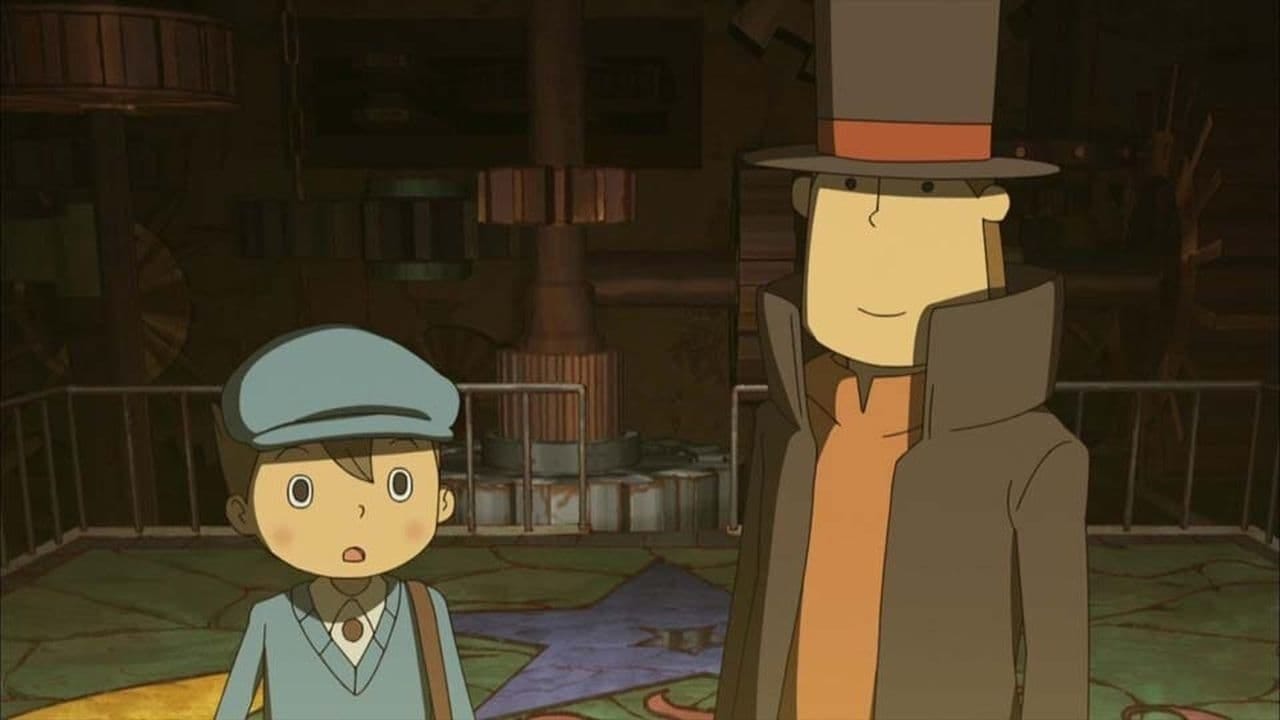
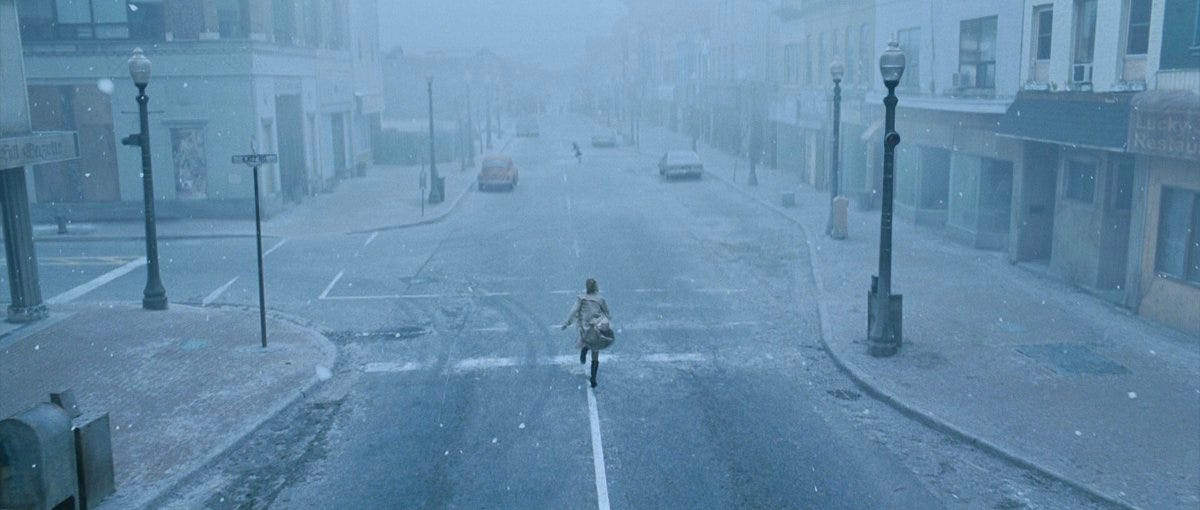
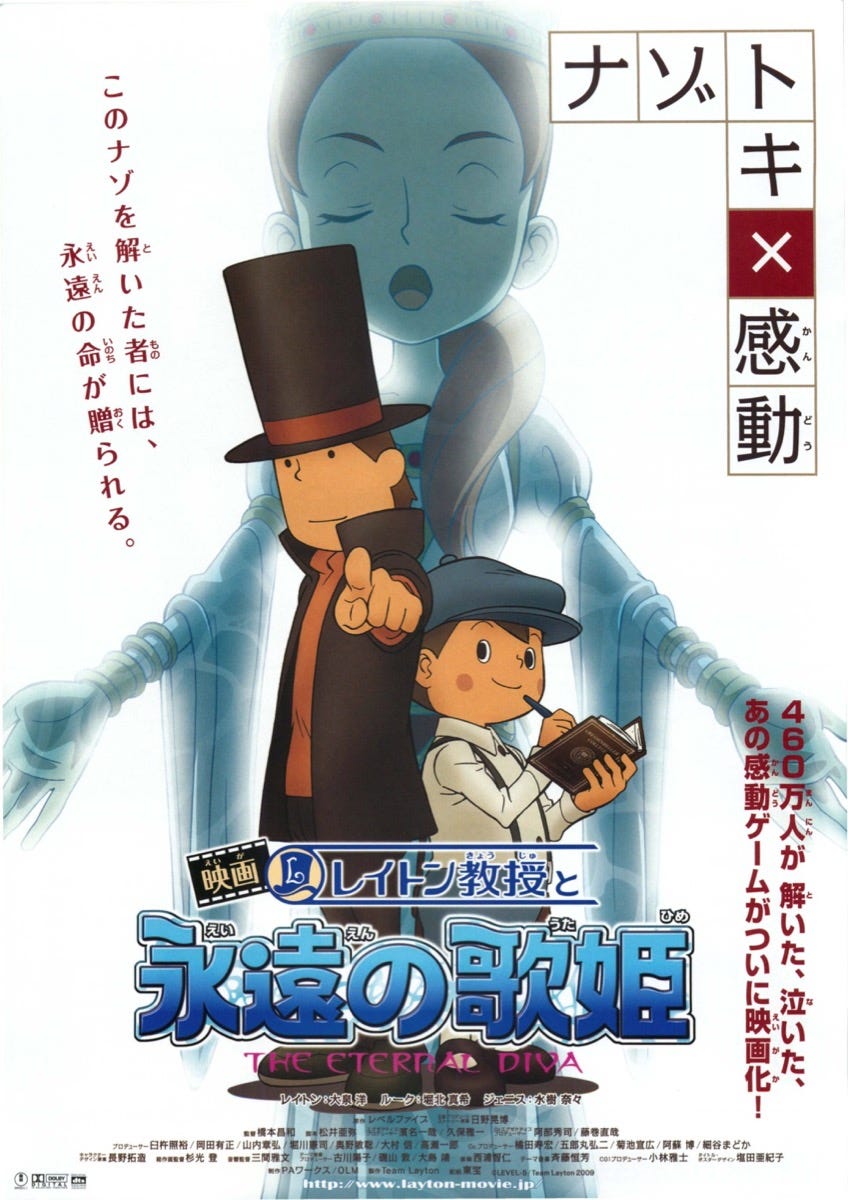
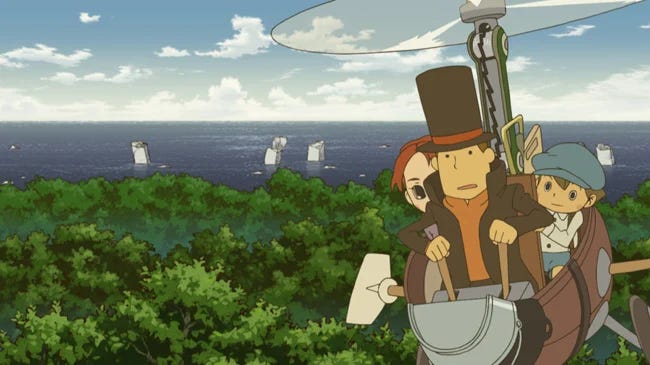

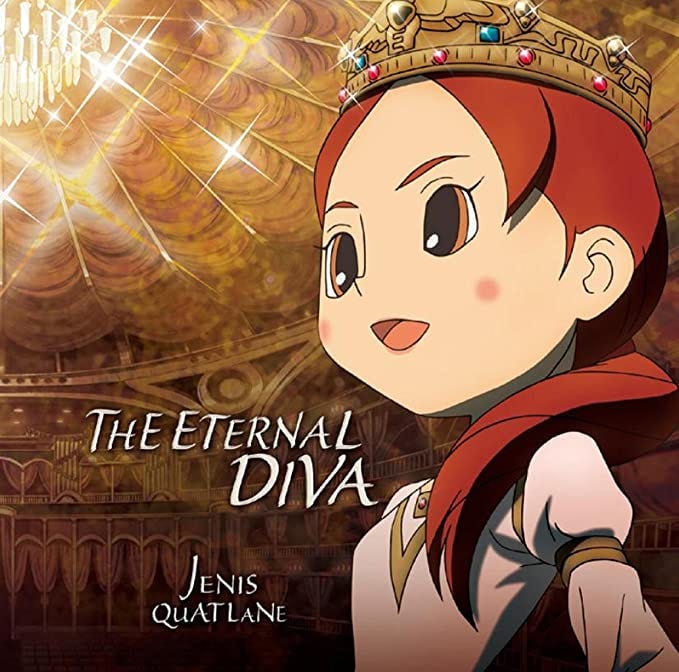
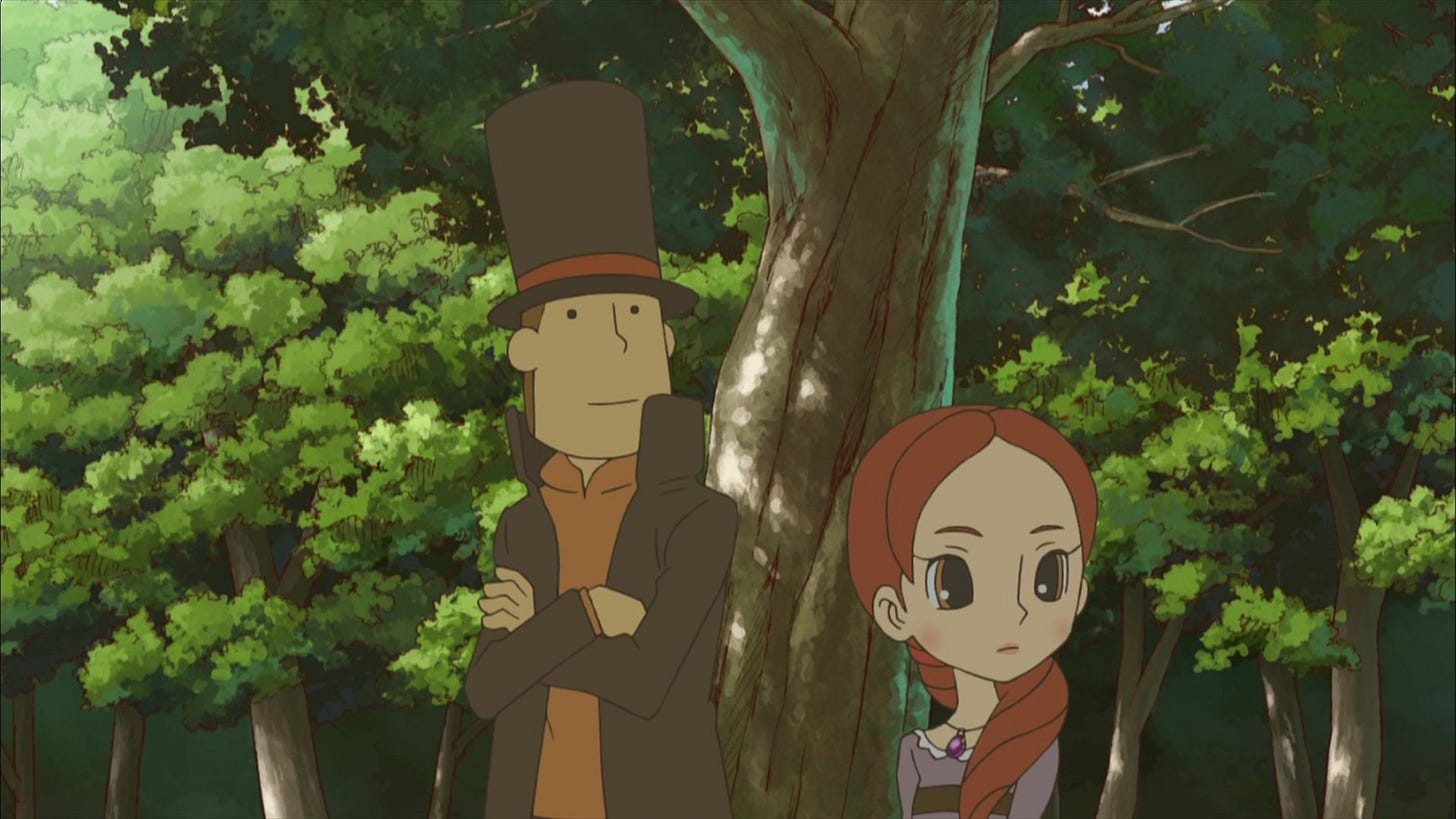
Love this movie! I think another good video game adaptation (although some may disagree) is Takashi Miike's adaptation of Ace Attorney. Like yes, it was wild and over the top, but it was the best possible live-action adaptation of that source material.